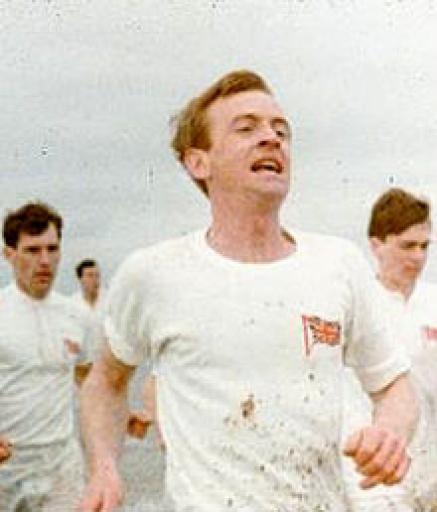Chariots of Fire |
|||||||||||
|---|---|---|---|---|---|---|---|---|---|---|---|
| Primary Creator |
|
||||||||||
| Contributor(s) |
|
||||||||||
| Properties |
|
||||||||||
| Name of Work | Chariots of Fire | ||||||||||
| Production Date | 1981 | ||||||||||
| Production Location |
|
||||||||||
| Current Location |
|
||||||||||
| Media Types | |||||||||||
| General Notes | The British version was a couple minutes longer, since a sumptuous interior scene of the young men playing a British cricket match was cut for the American release. | ||||||||||
Description
Centered around the Olympics of 1924, a fact-based story that is written, directed and acted to transcend any whiff of documentary.
It features two young men who enter Cambridge, one as an English Jew (Abrahams) who has to deal with some antisemitism in his country, and one who is a devout Christian Scotsman (Liddell). Both are stunning runners who are qualified to run for England in the Olympics. While both are clearly driven athletes, Liddell links his skill as arising from his Christian God and he professes to be running for the glory of God, while Abrahams seems driven by his desire to overcome his perceived status as a second-class citizen, but who is clearly simply driven to excel.
The film portrays the challenges and struggles to greater achievement in their fields of running, along with various subplot lines such as a romance between Abrahams character and the ethereal and real Alice Krige character, and the radicalism of the Abrahams character to hire a private coach to reach higher levels of achievement.
Theme
Life is achievement.
Emotional Sum or Sense-of-life
A complete feeling of openness of the world to greatness of your own choosing.
Context Information
Tags
achievement, sports, Track, World War I

Discussion
- Log in to post comments
Complete PackageThis film is perfect as a cinematic art work and as a near perfect expression of the style of Romantic Realist.
The directing, screenplay, acting, art direction, music, costumes, etc. are masterfully done. This makes the film a rare product of all the disparate elements that come together as a unified work of art. Hudson, as director, presumably gets the main credit for this, since he must have molded all these different parts into the great vision the film expresses. The film is stylistically realist, in its concrete portrayal of the super-human efforts of various athletes and others to forge a rational and achievement-oriented world for themselves. It is Romantic in the classic sense of Ayn Rand, that the story line and plot is all about choices and values that the characters act upon in order to gain what they want out of life -- along with the drama of competition and difficulties overcome.